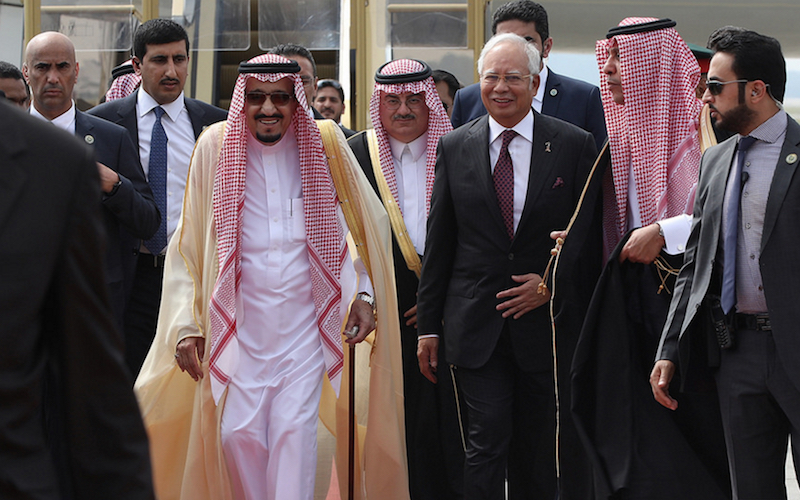
Malaysia’s Future Role in Saudi Arabia’s Islamic Military Alliance
Saudi King Salman is currently on a three-week tour across six Asian countries. The duration of the trip underscores the commercial and geopolitical importance which Saudi Arabia attributes to Asia. It comes at a time when the kingdom is promoting Vision 2030—an ambitious agenda aimed at ending the country’s reliance on oil and creating a prosperous and sustainable knowledge-based economy—and seeking to strengthen its geopolitical influence across the Asia-Pacific region. While Riyadh assesses the Trump administration’s policies, it is hedging its bets on the future of its post-War alliance with the West by continuing the “Asia Pivot” initiated by King Abdullah in the mid-2000s.
Significantly, the first leg of the king’s Asia tour was in Malaysia, which no Saudi monarch had visited since 2006. While in Kuala Lumpur, King Salman sought to identify new markets for Saudi Arabia’s non-oil exports and secure more Malaysian investment in Vision 2030. The two governments signed several agreements to enhance bilateral cooperation in sectors including construction, aerospace, halal products, and hajj services. Most importantly, Aramco agreed to invest $7 billion in a Petronas refining and petrochemical project, marking the kingdom’s largest downstream investment outside of Saudi Arabia.
Symbolic, religious, and political dimensions contribute to Malaysia’s importance in Saudi Arabia’s grand vision for the Asia-Pacific region. Determined to extend influence among Muslim-majority countries in Southeast Asia, the kingdom sees Malaysia as having an important role to play in Saudi Arabia’s 41-member Islamic Military Alliance to Fight Terrorism (IMAFT). To showcase unity in the struggle against terrorism, Saudi Arabia and Malaysia announced the King Salman Center for Global Peace (KSCGP) to “intensify and concert the Islamic world’s effort to confront extremism, reject sectarianism and to move the Islamic world toward a better future.” The center, which is set to launch later this year, will focus on the threat of international terrorism without associating it with “any race, color or religion.” The Intellectual Warfare Center at the Saudi Ministry of Defense and the Center for Security and Defense at the Malaysian Ministry of Defense will jointly set up the institution. The Malaysian University of Islamic Societies and the Jeddah-based Muslim World League will be stakeholders in KSCGP.
Beyond the diplomatic rhetoric, will Malaysia and Saudi Arabia step up cooperation in counter-terrorism efforts in a meaningful way? Given a host of lingering complications and confusion regarding Malaysia’s actual role in IMAFT at the alliance’s outset, it is not entirely clear how Kuala Lumpur will contribute to the Saudi-led alliance in the future.
